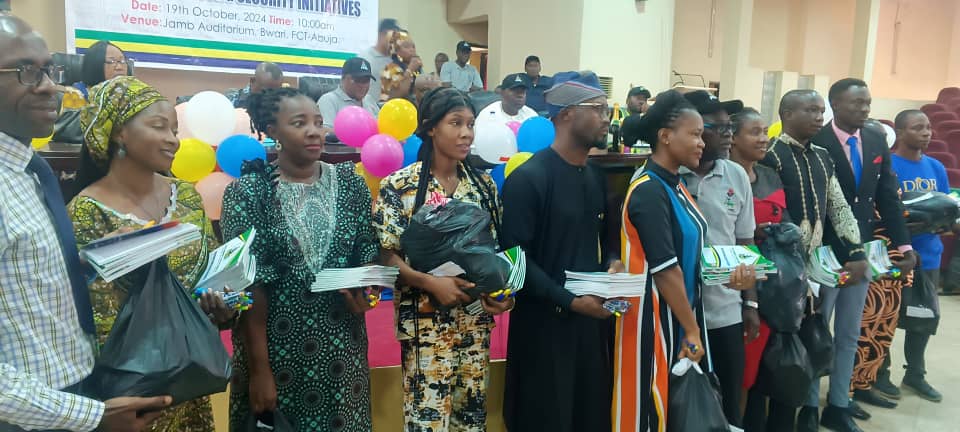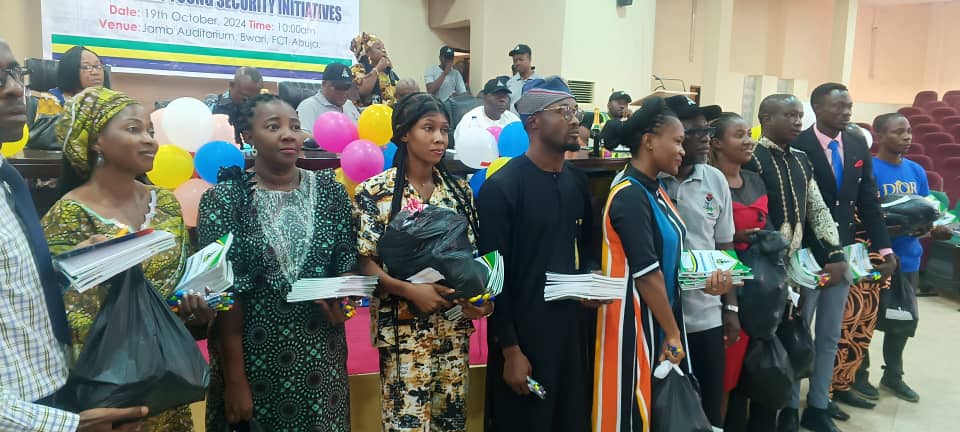By NEWS AGENCY OF NIGERIA
Abuja, Oct. 20, 2024 (NAN) The Police Community Relations Community (PCRC), Bwari Division in the Federal Capital Territory has sensitised over 300 secondary school students on security, juvenile deliquecy and effects of social media on youth behaviours.
The sensitisation carried out over the weekend with the theme, ” Catch them Young From Criminality” was organised by the Bwari Division of the PCRC with support from the Nigeria Police.
The Chairman of Bwari PCRC, Decon John Owens in his address of welcome said tte fomative years of adolescence are crucial in shaping the minds and characters of young people,
“But unfortunately, many of our youths are exposed to various foms of criminality, including cybercrime, subatance abuse, gang violence, cultism, examinatin malpractices and many more.
“These vices does not only harm the individuats, but also undernmine the fabric of the society. That is wty this workstop is very crucial.
“By catching them young, we can redirect their enegies towards positive endeavors, fostering a brighter future for ourselves and generations to come.
“As leaders of tomorrow, you have a critical role to play in shaping the future of our country. We want to empower you with knowledge, skills, and values that will help you make informed choices and resist the allure of criminality.
“The PCRC is committed to strengthening communitv-police partnerships, recgnizing that, together we have to come up with this project,” Owens said.

He further explained that education plays a pivotal role in shaping the minds and characters of the young people, adding that, through this workshop, the PCRC aim to educate students on the dangers of criminality.
“Also, to equip them with life skills to resist negative infuences and encourage responsible decision-making in their lives”.
Similarly, DSP Alfred Abba, the DCO from Police Divisional Headquarters, Bwari Division called on the students to desist from any form of Internet crime and juvenile deliquency that would jeopardise their future dreams.
Abba also charged parents not to support their children when they commit crimes, adding that they should always be vigilant on the behaviour of their children, wards and their friends.
Meanwhile, Dr Olumuji Peter in his paper presentation titled “Understanding the Psychological factors that influence Juvenile Deliquency on Criminal Activities” said faulty parenting, peer pressure and misguided motivation are some facfors responsible for juvenile deliquency.
“To overcome these problems, the youths should engage in extra curriculum activities, have positive role models, family support, access mental health services, community awareness, rehabilitation programmes and many others”.
Also, Mr Kenneth Chima, the President of Springs Aid Foundation who presented a paper titled “Effects of Social Media on Youths Behaviour and Crime Tendencies” said social media has it benefits and negative influence.
Chima explained that youths stay connected and have access to news and current affairs through the social media, adding that it also provide entertainment, promote skill development and social change.
“Social media platforms have a significant influence on youth behaviour, they serve as a breeding ground for criminal intent, perpetuating and reinforcing deviant behaviors. As these platforms continue to evolve, so too must our approaches to understanding and mitigating the risk they pose.
“It is a delicate balance between embracing the positives of connectivity and guarding against the insidious ways it can fuel criminal behaviours.
“Parents and school counselors should plan for workshops and seminars for their students for continuous engagements on how to behave and conduct themselves.
“Institutions should discipline offenders to prevent lawlessness, and there should be Increased collaboration between law enforcement agencies and Social platforms on algorithm transparency, strengthening
regulations and policy,” Chima advised.
NAN reports that the over 300 students from different private and public secondary Bwari Area Council were in attendance. (NAN)�

